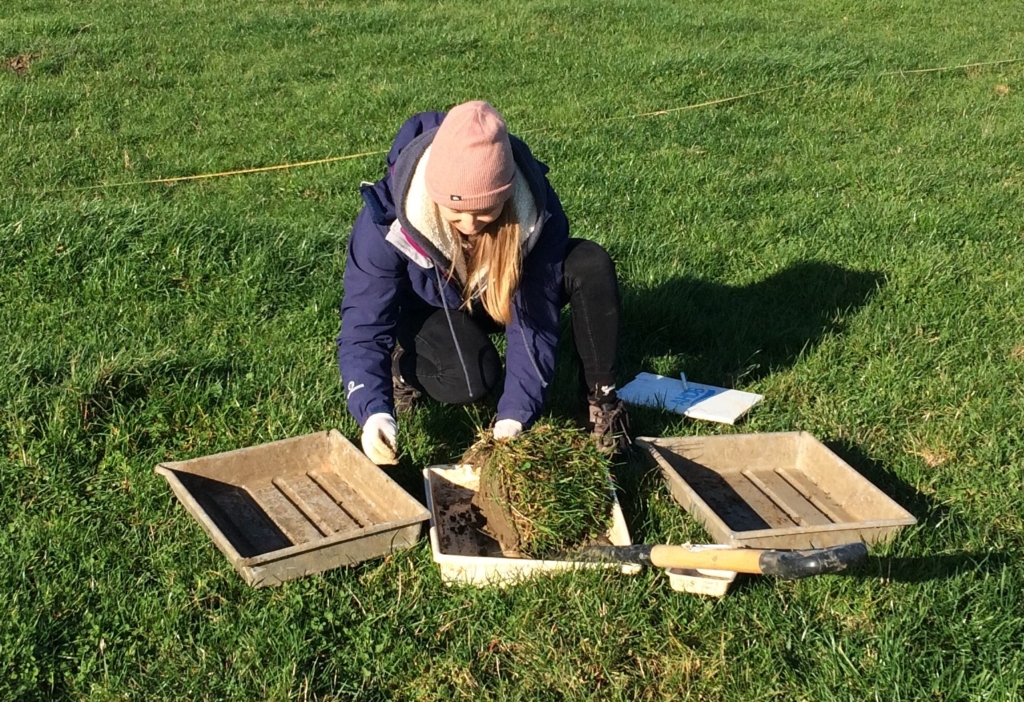
What is your job role at the ORC?
How long have you worked at the ORC?
Just over two and a half years
Where are you from/ where are you based?
I grew up on the border of South Yorkshire and Nottinghamshire on a mixed arable and livestock farm, where I was lucky enough to spend most of the pandemic last year raising the cade lambs. I am currently based in Gloucestershire, close to the ORC office in Cirencester.
What is your background and how did you get involved in the organic industry?
My academic background is in ecology, having studied Marine Biology and Coastal Ecology at university. Agriculture and farming on the other hand are part of who I am and are what have shaped my interest in the natural environment and livestock – lambing is my favourite time of the farming calendar besides harvest. Over the years I have collected a field full of pet sheep to my dad’s dismay…
During my university degree I learnt that my interest in the marine and aquatic environment crossed over with agriculture and the way in which we manage the farmed environment.
After finishing university, I took a gap year to explore a bit more of the world and to help out on the farm. I joined ORC during that year and got involved with the organic industry through participation in the iSAGE project. As the iSAGE project was focused on sheep and goat production, it felt like the perfect place to start my research career.
What does your job role entail?
My job role is centred around ORC’s in house sustainability assessment, The Public Goods Tool. I facilitate the application of the tool on farm and in current and future research projects.
However, beyond the core focus it is very varied with a mixture of tasks. Within the iSAGE project I was responsible for collating and analysing the findings from Public Goods Tool assessments conducted across Europe and I was also part of the toolbox team who created Sageguard, an online ‘toolbox’ of recommendation for sheep and goat farmers to help improve on farm sustainability. More recently I have been completing the PG Tool with farmers both on farm and ‘virtually’ through the pandemic. Occasionally I have quieter times which I like to spend supporting the crops team with data collection in the field.
What are you working on at the moment?
Currently most of my work is focused on the ELMs Tests and Trial projects, the main one of which is looking at the capacity of the PG Tool to monitor public goods delivery on farm across two different landscape areas. Alongside this we have a new project starting, FOODLEVERs, which is looking to adapt the PG Tool for its own research purposes to help identify leverage points within innovative organic farm case studies. I also have a few smaller projects looking at carbon emissions in agricultural systems, one of which is linked to the SEEGSLIP project and will be using Agrecalc to calculate the GHG emissions from 56 pasture fed livestock farms in order to establish the global warming impact of various pasture fed livestock systems.
What do you enjoy about working at the ORC?
I think I would have to say the participatory nature of the work, which enables us to work directly with farmers in most of our research, allowing them to understand more about what we do and enabling us to tailor our research so that it is relevant and of interest to the key stakeholders, learning from them in the process.
I also enjoy the fact that despite being a small organisation we are still involved in large European research projects, providing opportunities to learn and share research ideas with researchers and stakeholders from across Europe as well as in the UK.
What do you think the ORC’s biggest achievement over the last 40 years has been?
I think ORCs biggest achievement is being the UKs leading independent organic research centre, conducting participatory research with farmers.
What do you see as the future of farming and what role does the ORC play in this?
I think the future of farming lies in the ability of agricultural systems to support the environment, through a holistic approach which identifies ways to reduce environmental impacts whilst remaining profitable. Organic agriculture already applies a number of practices that reduce environmental pressures. I think ORC has a role to promote the organic sector but also translate learnings to encourage others to uptake low input methods, tried and tested in the organic sector.
Is there anything exciting we should keep our eyes out for over the next couple of months?
There will be a few outputs from the work I have been involved in coming out over the next few months, not to mention the rest of our research digests as part of our 40th anniversary celebrations!
See also: Assessing the sustainability of sheep and goat farms in Europe
